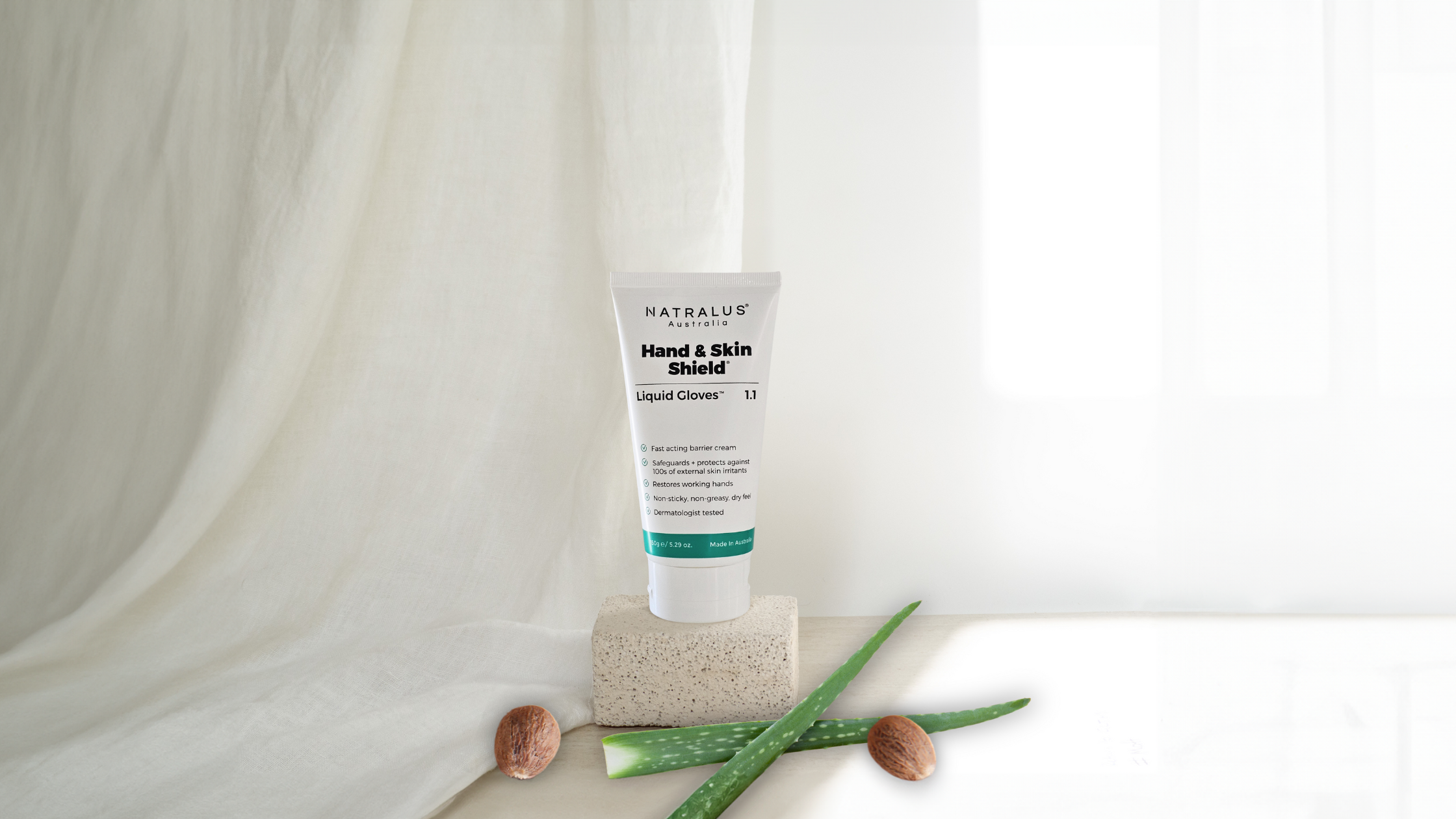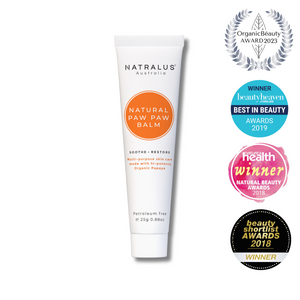Chemical use in the workplace in Australia has become widespread. This means that most Aussie workers are exposed to some form of skin irritant on a daily basis. Manufacturing, maintenance, food service and mechanic workers often deal with skin hazards. It can be a simple problem like dry skin or a more advanced issue like dermatitis. Protective gear like gloves, gowns, jackets and sleeves are great ways to safeguard workers at the site. However, barrier hand creams made from aloe vera and jojoba seed oil can prevent and heal dry, cracked, inflamed and pigmented hands. Let’s break it down:
Workers and dry hands
Most employees think that dry hands are part of the job. Most don’t realise that cracked skin can allow harmful contaminants to penetrate the layers of the skin and make them sick. Educating workers on the importance of maintaining healthy skin can help them prevent skin damage and minimise lost work time and the need for doctor's visits.
It is imperative that workers understand the potential hazards of the substances they work with and the effects they can have on their skin. Employers have a responsibility to teach workers how to remove chemical elements safely and effectively, during and after the workday.
Pre-work cream
Employees should be encouraged to apply a hand barrier cream before work. This can help protect the stratum corneum, the outer layer of the skin, which is only three red blood cells thick. Common workplace chemicals like degreasers, solvents and abrasion can take their toll on this layer if proper protection is not applied to the skin.
Small, portable before-work creams can be easily misplaced. It is better to site the hand barrier protection cream dispenser at a central location for easy access. For instance, a wall-mounted dispenser near the locker room or the wash-up area.
After-work cream
An after-work cream can help the hands to heal and regenerate. An excellent natural moisturiser can help the hands replace any lost natural oil and moisture.
Handwashing and dry hands
Cleaning your hands with sanitisers, soaps and surfactant cleansers can increase your skin’s inflammation and permeability, and affect its structure and functions. It is estimated that a healthcare worker washes their hands more than 100 times in every shift. This can increase the chances of their hands drying and cracking. A hand barrier cream for nurses can aid in skin hydration to restore lost moisture and oils.
Similarly, petroleum and mineral-based lotions can compromise the integrity of protective gloves. Dry and cracked skin can be painful and limit you from doing your usual activities. Improvements become visible after using a hand barrier cream 2-3 times a day for ten days. For better results, it should be applied as often as possible. When you’re not at work, reduce water exposure on your hands to prevent your hands from drying out.
Benefits of hand barrier cream made from natural ingredients
Aloe vera has offered remedies for various skin conditions for decades. Jojoba seed oil, on the other hand, is quite similar to the skin’s natural oils. A hand barrier cream made from these two has the following benefits on your working hands:
1. Moisturises and prevent wrinkly hands
Exposure to harsh chemicals, sweating from wearing gloves, and cleansing with harsh hand washes can leave your hands dry and needy. Aloe vera adds a protective layer to the skin that helps it replenish its moisture. Notably, it does not leave your hands too greasy or clog the pores. Aloe vera contains enzymes that can protect your hands from becoming more wrinkled. Its plethora of antioxidants like vitamins E and C and beta-carotene can improve your skin’s natural firmness and keep it hydrated.
Jojoba seed oil is quickly absorbed into the skin to give it a healthy glow. Unlike water-based moisturisers, it offers long-lasting moisturisation because it does not evaporate.
2. Clear pigmentation
Knife scars and dryness can leave your hand with pigmentation or uneven skin tones. Aloe vera contains vitamin A and C, giving it skin lightening properties to help get rid of pigmentation and other skin blemishes. The skin on your hand will appear fair as a result of the enzymes and carotene present in this plant extract. Its enzymes form a strong exfoliator that can dissolve dead skin cells and inactive proteins, leaving your skin smooth and supple.
3. Ease skin irritation
The exfoliating aspects of aloe vera can help to remove impurities from the skin. Hormone auxin and vitamins A and C give it its anti-inflammatory benefits. This enables it to soothe the itchiness, redness and blistering that comes from work-related activities.
4. Heals burns, cuts, and wounds
Harsh chemicals at work can leave your hands with stubborn wounds and burns. Aloe vera contains medicinal aspects that can help soothe all manner of skin irritations. It activates powerful healing activities in the epithelial level of the skin to help it heal faster. Aloe vera also contains antioxidants that accelerate healing of burns and wounds. It is a powerful antiseptic that cleans deep into wounds to prevent infections. Hormone gibberellins can stimulate the growth of new cells with minimal scarring.
5. Antimicrobial
Aloe vera can reduce the size of the pores in your hands. This helps to prevent dirt, sebum and microbes from entering your skin and causing infections. Jojoba seed oil is also anti-microbial to inhibit the growth of bacteria on the skin.
The hand barrier creams and moisturisers available from Natralus are all-natural with all the real skin-kind benefits of aloe vera and jojoba seed oil while being free from chemicals, petroleum, parabens and animal testing. Our raw materials are sourced from local organic farms in Australia, which guarantees you, your workers or your family the natural goodness of all our beauty and health products.
Discover Our Hand and Skin Shield for Silky Smooth Hand






